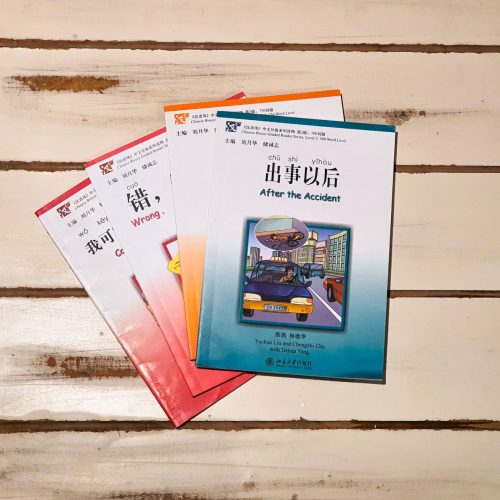
Language Learning While Self-isolating
Please keep in mind that some of the links in this post are affiliate links. In the event of a sale, I will be awarded a small commission (at no extra cost for you). Thank you for supporting my blog!
When I was planning out my blog content for the month, I had no idea that the world would be hurtled into an unprecedented health crisis. As news of the rapid spread of the Coronavirus started taking over my feeds, it suddenly seemed inappropriate to go about my usual posting schedule without any mention of what has now become a global pandemic.
Like many of you, I am currently self-isolating. In theory, now is the perfect time to immerse myself in language learning. With all social commitments suddenly off the table, I certainly have more than enough extra time on my hands to devote to my language studies.
But as the infection rate in my country (South Africa) continues to rise at an alarming pace, and friends from around the world are sending messages of lockdowns and empty supermarket shelves, I find myself becoming increasingly anxious.
Despite finally having time to study, I’m finding it difficult to focus on the more challenging aspects of language learning, like coming to grips with complex grammatical concepts or working through a mock HSK exam as I had planned.
If, like me, anxiety is getting in the way of your language studies, this one’s for you. Here are a few gentle activities that will allow you to engage with your target language while practicing self-care.
Watch a movie or series
Immersing yourself in a good movie or series in your target language is the perfect way to escape from reality for a couple of hours and while away the time. You don’t have to commit to any intensive studying at the moment, so turn on the subtitles, put away the pen and paper and allow yourself to just relax and enjoy the narrative.
Even passive exposure to naturally spoken language can be hugely beneficial. Consider this your first watch-through. When you come back to the show for a more intensive study session, it’ll help that you are already familiar with the plot.
Practice writing vocabulary – without drilling
For me, handwriting Chinese characters is a very soothing, almost meditative activity. Instead of actively drilling and testing vocabulary, simply write out your words by hand without any pressure to recall them.
The Goldlist Method works really well for this, as it requires you to focus on enjoying the process of writing rather than cramming vocabulary.
Read something
Like film, reading is a great form of escapism. Now may not be the time for intensive reading in your target language. The idea is to avoid frustration and allow for immersion, so try to find a book, article or reader at or slightly above your current level.
If you are studying Mandarin Chinese like me, the Chinese Breeze and Mandarin Companion graded readers are fantastic.

Listen to music
Listen to some music in your target language. The more upbeat the better. Sing along. Dance. Jump on your bed. Do the silly voices. What happens in quarantine stays in quarantine.
Journal
Journaling can relieve stress and help you work through feelings of anxiety. If you feel up to it, you can try journaling in your target language. For a more relaxed approach, just write free-flow, substituting words in your native language where needed. You can always go back later to look up words and correct mistakes.
Talk to someone
If you are self-isolating or practicing social distancing, things can get a little lonely. While you may not be able to go out and meet friends, you can chat to native speakers using apps like HelloTalk, Italki or Skype.
Review
If you’re finding learning new information overwhelming at the moment, review some of your old study material. It never hurts to go over the basics and build a solid foundation.
Organise your study material
Tidying and organising your space can help you feel more in control. Use your extra time to sort through your language notebooks, textbooks or app folders and organise your study area.
Take a break if you need to
Don’t feel pressured to get ahead in your language studies just because you have some free time. If you really don’t feel up to it, give yourself permission to take a break.
Are you self-isolating at the moment? How are you holding up? We’re all in this together. Wash your hands. Stay at home. And, above all else, be kind.
Stay safe, everyone.





